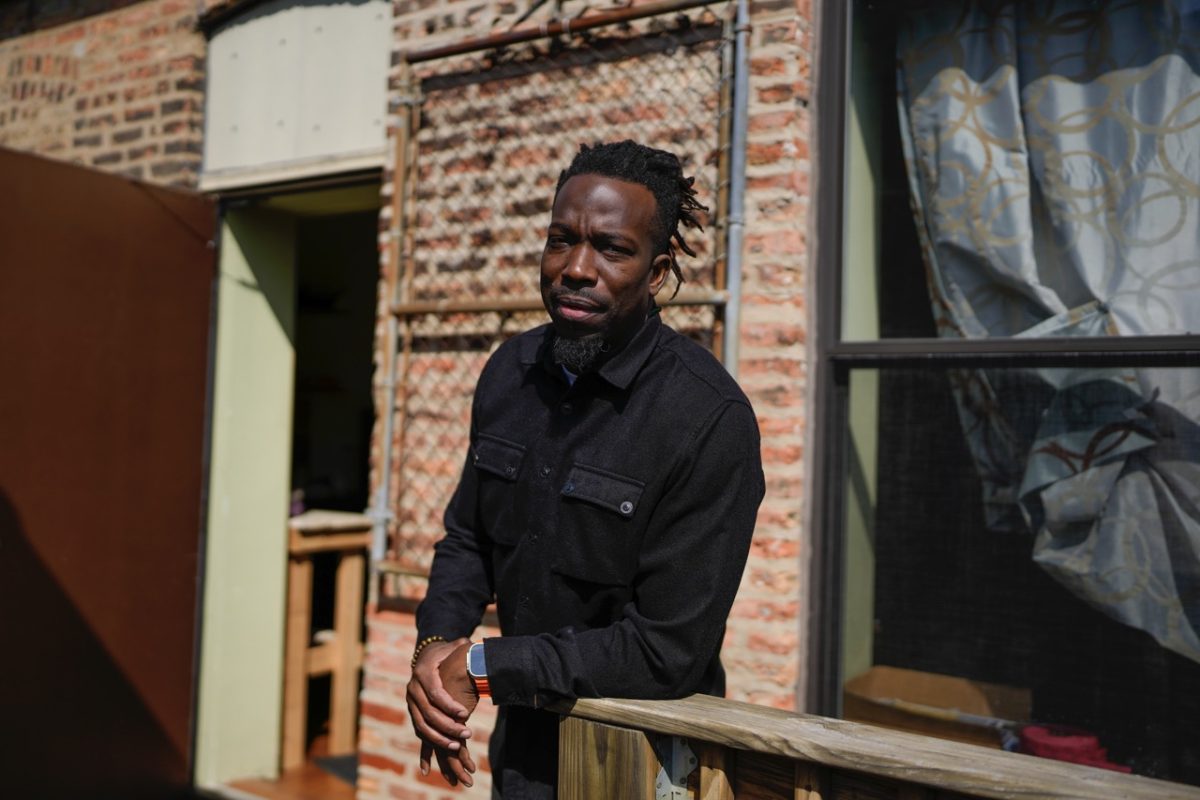Rusted fire hydrants are open in neighborhoods across Chicago welcoming summer with fits of youthful laughter and free car washes to those passing by. But while the summer heat has brought floods of children playing happily in the street pools of water, a surge of violence continues as temperatures have risen.
The most recent Chicago Police Department data reports 236 homicides have plagued Chicago since the beginning of the year, 128 occurring within the last 90 days.
Recently, a number of news outlets including The Daily and The Huffington Post reported the city’s homicide rate has surpassed the number of U.S. troops killed in Afghanistan during the same period of time.
“When music, society, and media is telling you to A-be cool, B-to survive, and C-to get street cred(ibility), (people are) going to do what they got to do,” said Azalea Parrilla M.A., a 26-year-old social worker and Chicago resident in regard to the rise of crime. The country’s schools’ still schedule classes around an agricultural timeline, nine months of classes and three months off, she said. But in today’s urban environments, the result, is boredom.
Opportunity lies within selling drugs or committing other crimes, she said.
The City said it has been implementing several new initiatives aimed at decreasing crime that focuses on bringing more resources into the city.
The Chicago Department of Family and Support Services (DFSS) announced last week it has received an $800,000 grant from the Robert R. McCormick Foundation, the Walmart Foundation, and the Brandeis University Center for Youth and Communities to fund 700 summer jobs and educational opportunities for at-risk youth in the city.
“Because summer is when we tend to see an increase in violence, we will be working with more than 700 students from 13 city high schools…to provide summer jobs with longer hours, increased wages, and intensive coaching and mentoring,” said Evelyn Diaz, Commissioner of the Chicago Department of Family and Support Services.
But Parrilla said there are cultural challenges that need to be addressed that cannot be reached solely through jobs and education.
“It’s investing in communities so that they feel like they matter, so they feel valued, that’s what is going to change crime,” she said.
The City’s Strong Blocks/SAFE Communities Wrap-Around Strategy is aiming at organizing the clean up of vacant lots, graffiti removal, and streetlight repair to combat crime and improve living conditions. Recently, Mayor Rahm Emanuel also announced new efforts to combat crime in the city, which included strategies to enforce gun registration and titling through the state.
Parrilla said there is little sense of community today, a reason why social media is so extensive. People want to feel connected, but “neighbors are stealing from neighbors” in an effort to survive, she said.
“I think the biggest thing is to look at where guns and drugs come from, from the beginning,” said Dulce Quintero who has worked in social services in Chicago for nearly a decade and said no one is addressing how tools of crime are manufactured and distributed. “The reality is really looking at how our government is actually involved with the drug traffic(ing)…and guns.”
Mayor Emmanuel recently announced he will be working with 25th Ward Alderman Danny Solis to propose amending city ordinances which would result in tickets for possession of 15 grams or less of marijuana. Alderman Solis originally proposed a version of the ordinance in 2011.
“Once of the most significant results of this ordinance is that it will allow our police officers to spend more time out policing our neighborhoods and less time processing minor offenses and filling out paperwork,” said Alderman Solis.
Reports by the Chicago Police Department concluded there were 18, 298 arrests in 2011 for people with less than 10 grams of cannabis, often requiring the time of four officers to arrest and transport offenders in addition to further resources being depleted in Cook County court and jails.
“These arrests tied up more than 45,000 police hours,” said Superintendent McCarthy. “The new ordinance nearly cuts that time in half, which equals an approximate $1 million in savings, while freeing up cops to address more serious crime.”
For some, this tactic may only be effective in theory. “A lot of people in our communities have had a bad experience with the police,” said Quintero, who feels police often profile people and are in need of more training to appropriately interact with community members.
The City asserts CAPS is working with social service agencies to connect communities with various resources that include drug treatment, job training, family counseling, and ex-offender programs.
The City has also announced it is targeting “problem businesses” that serve as “conduits to criminal activity,” according to statements released by the Mayor’s Office.
The city is specifically targeting liquor and convenience stores and is using data gathered from various government departments including Public Health (CDPH) 311, Business Affairs and Consumer Protection (BACP), and Streets & Sanitation, transitioning “from a reactive approach after a major accident, to a proactive approach,” said the Mayor’s Office.
Since the beginning of June, four liquor stores have been closed and BACP has accused 30 other businesses of contributing to criminal activity. The establishments have received communication about their designation to the list of businesses arousing concern and may face further inspections by City departments. Businesses that have been identified and are found to be in violation may be subject to penalties or license revocation.
Chicago has also taken on a new Gang Violence Reduction Strategy (GVRS) to address the severity of violence, a strategy based on a national model that aims to prevent crime. The strategy is described as using the Chicago Police Departments Operations Center (DOC) and Crime Prevention and Information Center (C.P.I.C) and will incorporate Focused Deterrence, Gang Audits, and Social Service Providers to implement its approach.
“This is the first comprehensive strategy to defeat the violence associated with gangs, streamlining intelligence, communication and resources across bureaus and within the community,” said Police Superintendent Garry McCarthy earlier this summer.
“Everything is a power struggle,” said Parrilla. She also said sources of crime stem from people’s struggle to gain power in their lives. “When (people) have been stripped of so many resources (and) opportunities and their just left with this feeling of disempowerment, your only other option is to fight,” she said.
ξ







